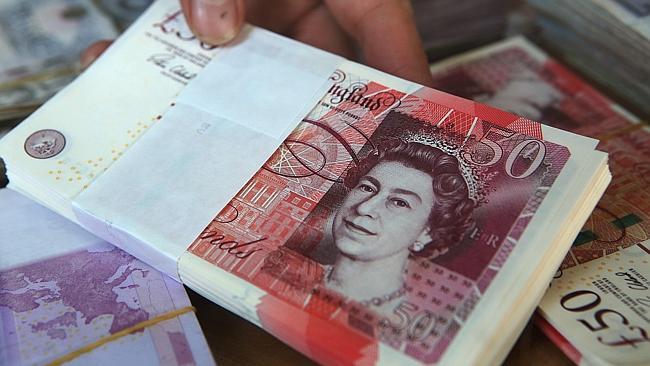Post-Brexit vote, hedge funds bet on further British pound falls
Hedge funds are betting that the battered British pound could fall further in the wake of the Brexit vote.

Hedge funds are betting that the battered British pound could fall further in the wake of Britain’s decision to leave the EU.
Managers, many of whom stayed cautious ahead of Britain’s June 23 referendum on EU membership, have since been cranking up their bets, according to industry insiders. The bulk of funds that specialise in trading on big economic trends are now betting that sterling will fall.
Hedge funds increased their bets against sterling by almost 50 per cent to more than 73,000 contracts over the two weeks to July 12, their biggest position for more than two months, according to data from the US Commodity Futures Trading Commission.
That compared with just over 33,000 contracts betting on the pound rising against the US dollar.
Among funds betting against the currency recently is London-based Rubicon Fund Management, headed by trader Paul Brewer. A spokesman for the fund, which gained 3.3 per cent in the week of the Brexit vote, declined to comment.
AQR Capital Management, a US computer-driven manager that runs more than $US150 billion ($200bn) in assets, is shorting the pound in its $US20bn managed-futures strategy, according to a source. It had already made more than $US1bn in paper profit on Friday, June 24, the day the outcome of the referendum was announced. A spokeswoman for AQR declined to comment.
“It’s a very popular trade,” said the head of prime brokerage at one US bank. “It’s arguably the most consensus trade out there today. You can’t not have that trade on.” That popularity, though, also makes it a vulnerable trade, especially if Britain’s negotiations with Europe go more smoothly than traders expect.
Paul Chappell, chief investment officer at hedge fund firm C-View, said he was “more sanguine” about sterling’s prospects. “Fundamentally we continue to be relatively bearish (on sterling), but the magnitude of any further movement is very much predicated on politics,” as well as the Brexit negotiations and their consequences, he said.
“It’s a crowded position, which leaves it very, very vulnerable to short squeezes,” he said. Sterling had already slumped from $US1.50 on the evening of June 23 to as low as $US1.29 last week. It has since recovered to trade near $US1.33, helped by the appointment of Theresa May as prime minister, which was seen by the market as providing political stability, and the Bank of England’s decision last week not to cut interest rates.
Yesterday in New York, the pound was buying $US1.3244, up from $US1.3188 late on Friday.
Nevertheless, some funds are looking for the pound to resume its fall and to drop as low as perhaps $US1.20, according to some investors, weighed down by loose monetary policy and possible weakness in the British economy. The Bank of England has strongly signalled that it will ease policy at its August meeting.
That short sterling bet is a common position for computer-driven hedge funds that try to latch on to market trends, and which have been attracted by the pound’s recent woes.
A model fund run by French bank Societe Generale, which simulates the trades placed by many of these funds, had been betting against the pound for the 15 days leading up to last Wednesday.
Aaron Smith, founder of US-based macro hedge fund Pecora Capital, had been betting on a rising pound — a trade that has been profitable in recent days as sterling has bounced — but has been reducing his position and expects to go short.
“The case for dollar strength remains unchanged and that alone should drive sterling to $US1.23 by the end of the year,” Mr Smith said. He said he was “major bullish” on the dollar and expects the Federal Reserve to increase interest rates.



To join the conversation, please log in. Don't have an account? Register
Join the conversation, you are commenting as Logout